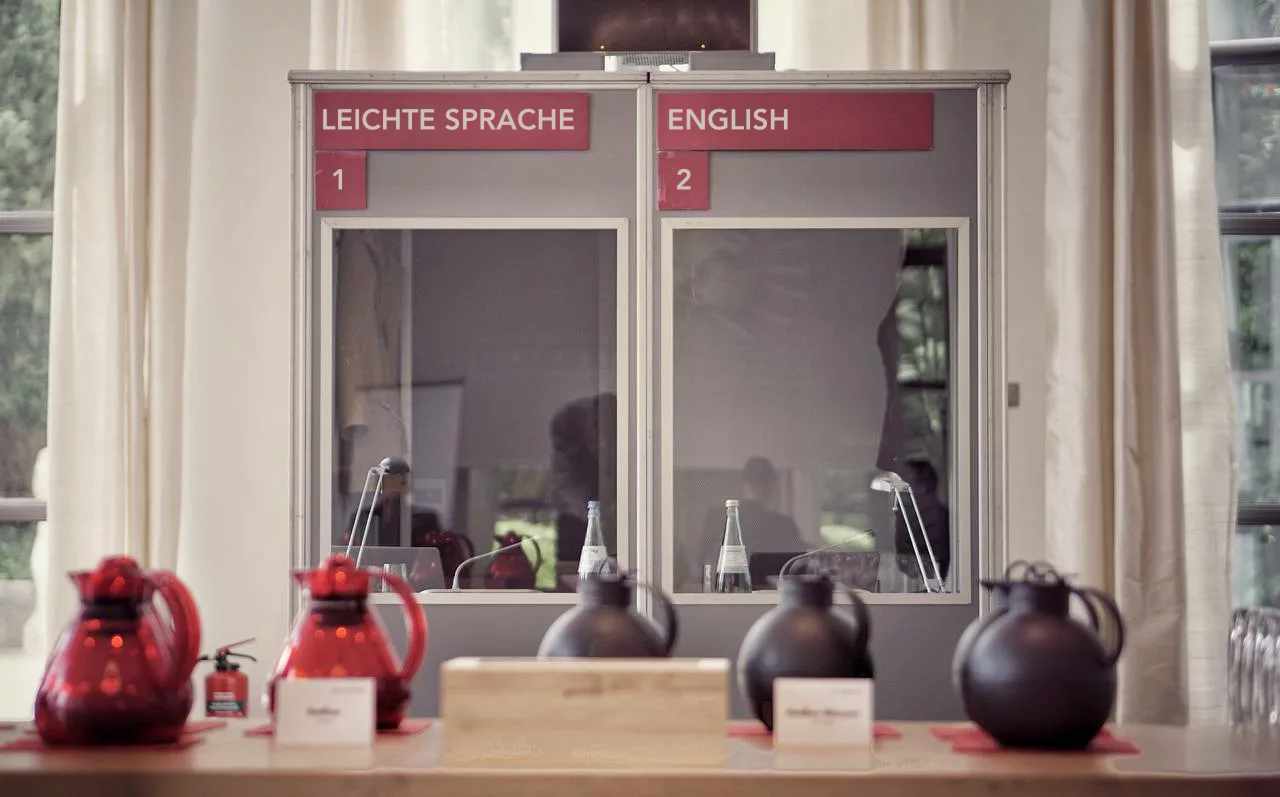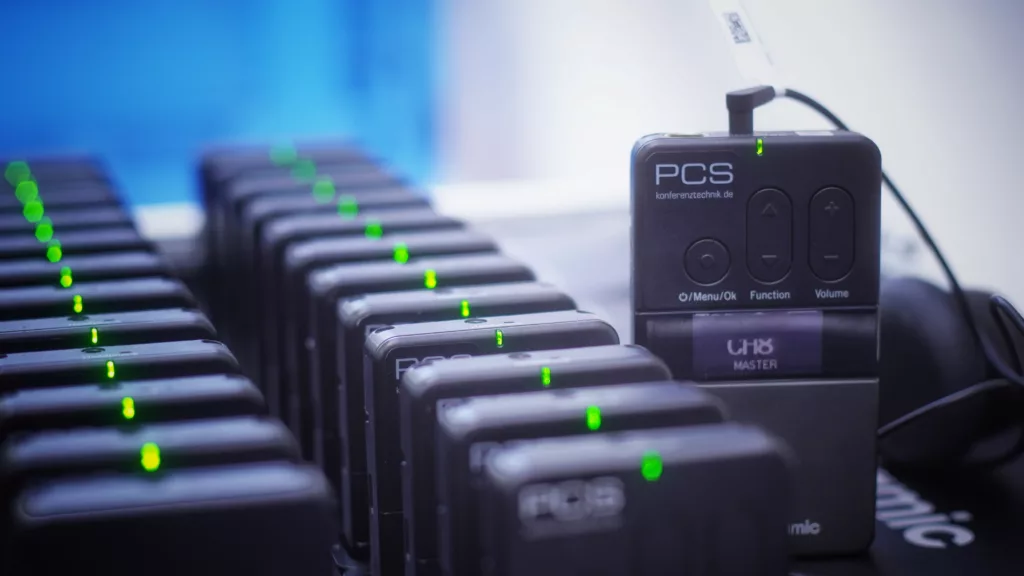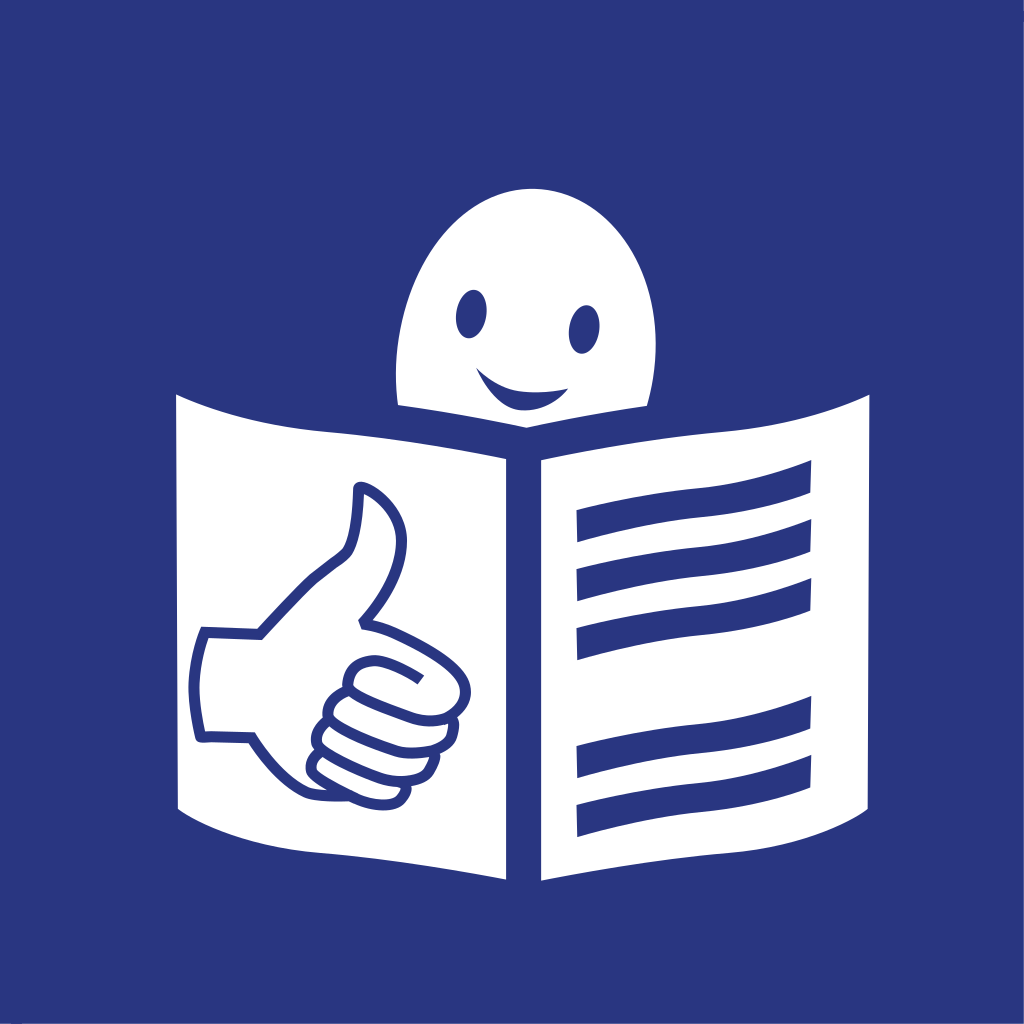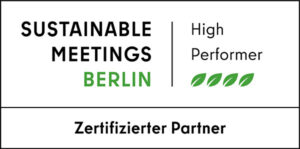Plain language for conferences, meetings and discussions
We provide interpreters for plain language and provide the necessary technology. At inclusive events, interpreting technology is used to translate content into plain language and enable all participants to understand it better.
We can help you with the technical planning, implementation and communication with the interpreters. Just get in touch with us, we will be happy to help you.
* free of charge and without obligation

29 years Experience
Professional interpreters
Full service
On site and online

Technology for interpreting into plain language
We offer you all the technology you need for the use of interpreters. Requirements vary depending on the size of the event and whether it takes place on site or online. It is important that the interpreters can hear and see well what is happening and being said at the event.
The interpreters sit in interpreting booths on site and can interpret undisturbed from there. Thanks to the soundproof booths, the interpreters cannot be heard in the room either. Participants can follow the interpreting via headphones and receivers if required.
We offer you all the technology you need for the use of interpreters. Requirements vary depending on the size of the event and whether it takes place on site or online. It is important that the interpreters can both hear and see what is happening and being said at the event.
The interpreters sit on site in interpreting booths and can interpret the event undisturbed from there. Thanks to the soundproof booths, the interpreters cannot be heard in the room. Participants can listen to the interpreting via headphones and receivers as required.
The interpreters can also work from our interpreting hubs. They sit here at special workstations and are called in for events and video conferences as required.
* free of charge and without obligation

Plain language and interpreters for plain language - frequently asked questions
Plain language is an important tool at conferences to ensure comprehensibility and accessibility for all participants. This is particularly important for people with cognitive impairments, learning difficulties or little knowledge of German. The use of plain language at conferences is carried out by specially trained interpreters who translate the content into an easily understandable form in real time.
The use of plain language makes it possible for more people to participate in conferences and understand their content, regardless of their cognitive abilities or language skills.
Interpreting in plain language is a relatively new discipline that differs from traditional interpreting methods. While traditional interpreters often use complex technical terms and long sentences, plain language interpreters focus on simple words, short sentences and clear structures. This requires special training and a deep understanding of the rules of plain language
The integration of interpreters in separate video channels is easily possible in video conferences and digital meetings, e.g. via Zoom or Microsoft Teams. Participants can open an additional audio channel here to listen to the interpreting audio or plain language.
The participants receive Headphones with receiverswith which you can select different channels. A special channel is reserved for translation into plain language.
Interpreters for plain language sit in interpreting booths and translate lectures, workshops or presentations simultaneously. They simplify complex content, use short sentences and explain difficult terms.
The translation is performed wirelessly via Infrared or radio systems to the participants' receivers. This means that each participant can choose individually whether they want to hear the original language or the easy-to-read translation.
In addition, communication assistants can be deployed to accompany people with learning difficulties directly, explain technical terms and ask them to speak more slowly if necessary.
Request interpreters for easy language and technology without obligation
Only fill in what you already know. Feel free to leave fields blank. We will get back to you quickly, advise you in detail and help you with planning and selection.
Do you need help? Simply contact us directly or use our chat function.
EU accessibility requirements
The EU has defined comprehensive accessibility requirements in Directive (EU) 2019/882, also known as the European Accessibility Act (EAA). The directive will be implemented in Germany through the Barrierefreiheitsstärkungsgesetz (BFSG), which will come into force on June 28, 2025. From this date, many products and services, including digital meetings, must be designed to be accessible. This also includes the provision of sign language interpreters to enable people with disabilities to participate in such meetings and congresses.





